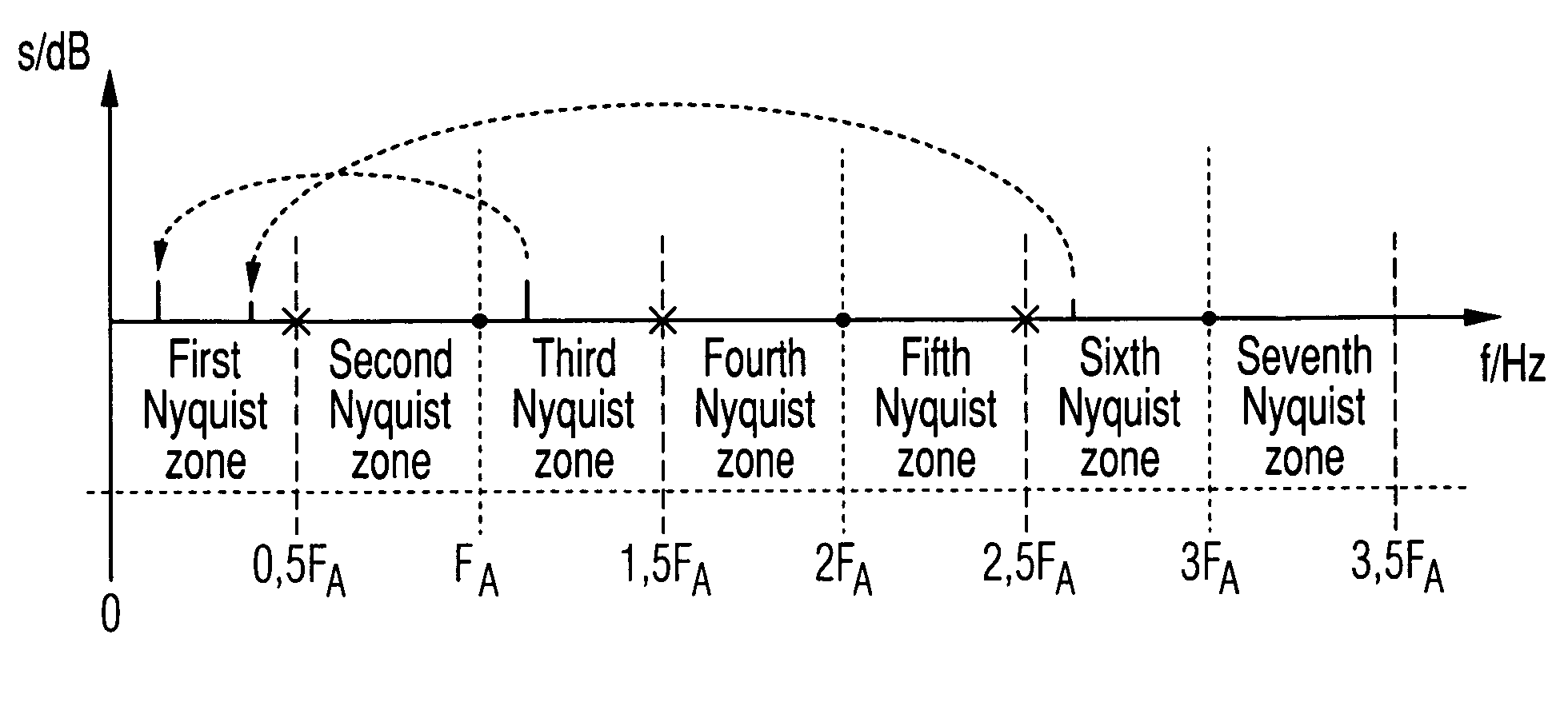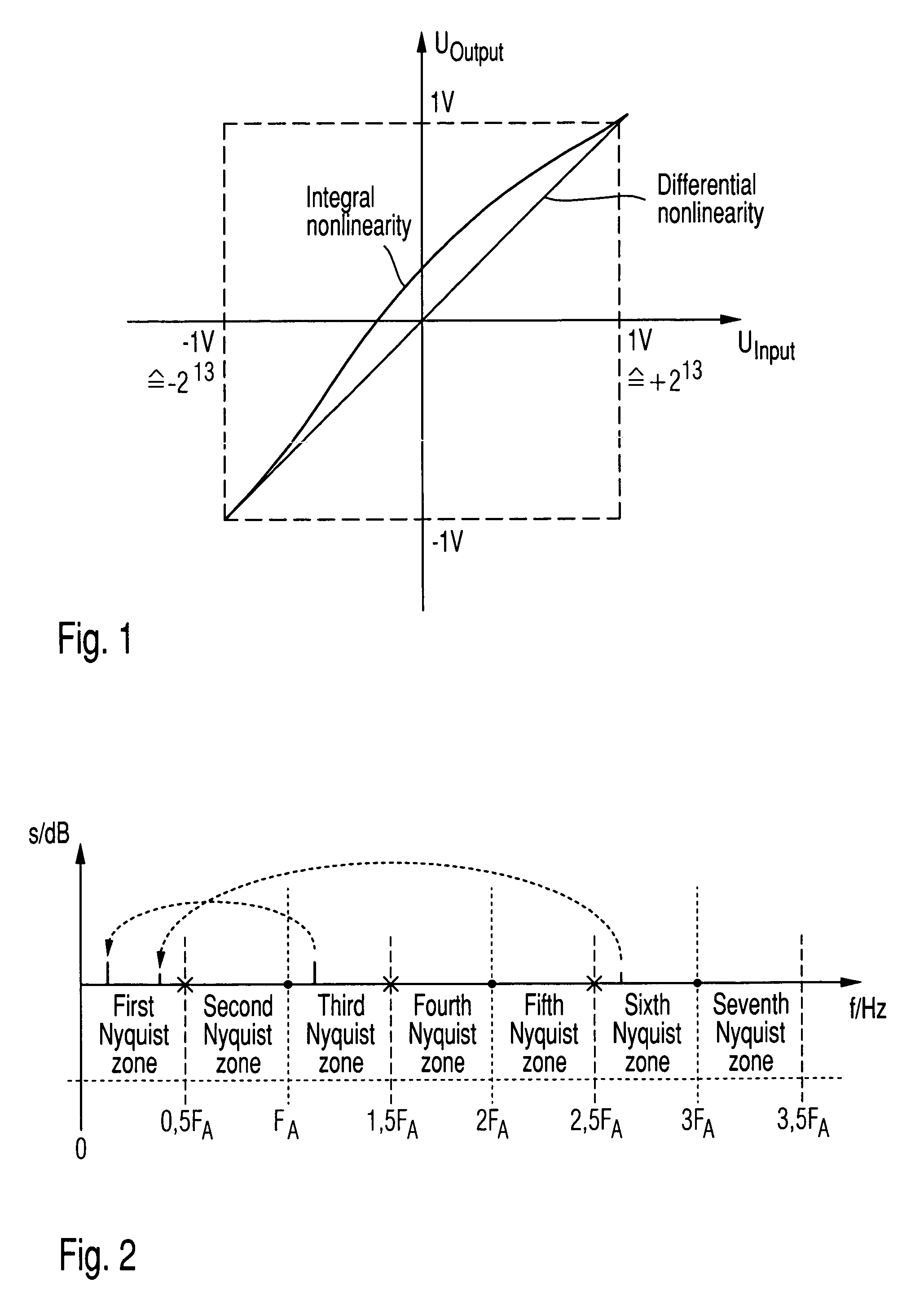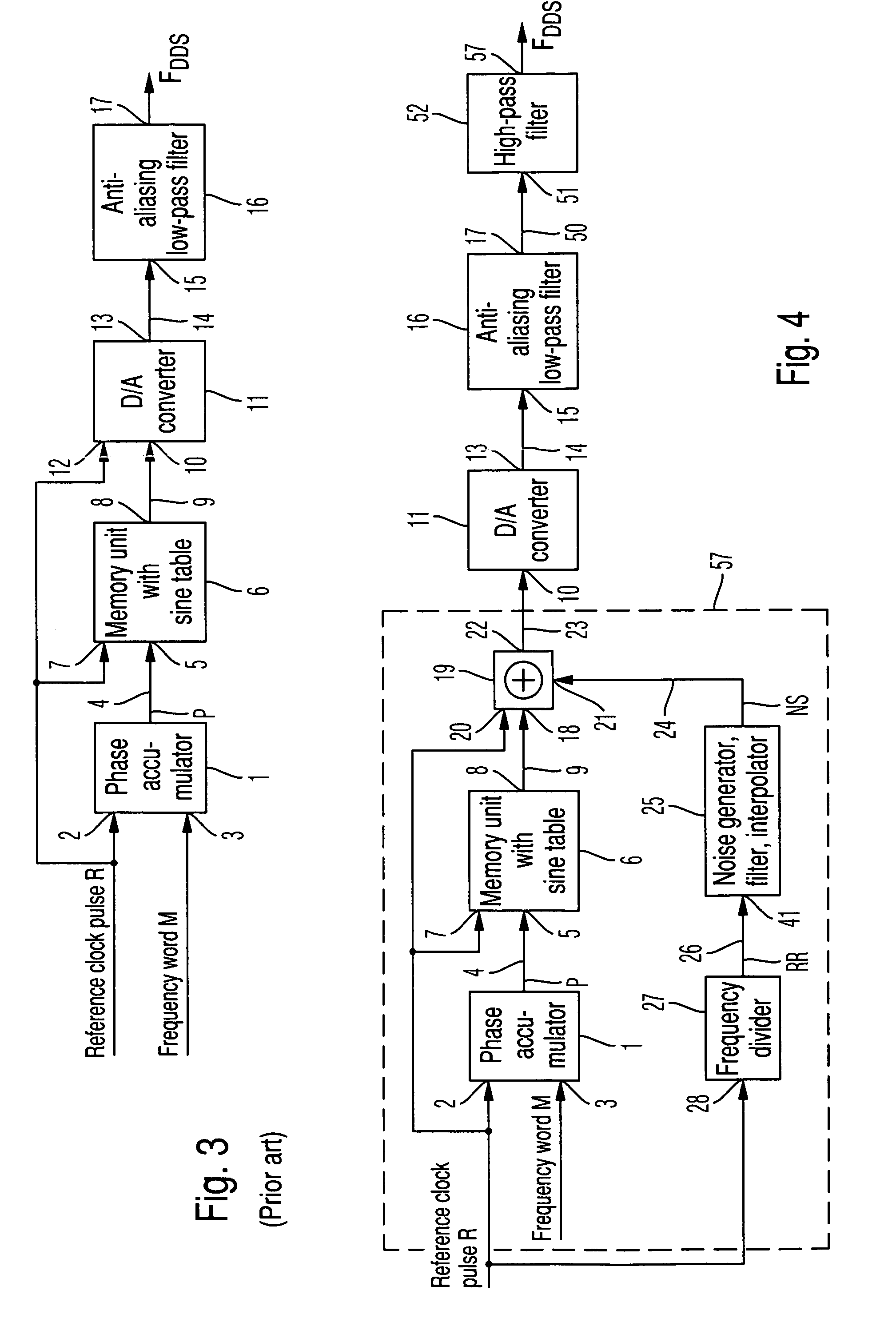Direct digital frequency synthesizer
a digital frequency synthesizer and direct technology, applied in the field of frequency synthesizers, can solve the problems of poor control dynamics, comparatively poor transient recovery performance of fractional-n-methods, and significant increase in phase noise of phase-locking loops, so as to increase the period of pseudo-noise generator noise signals
- Summary
- Abstract
- Description
- Claims
- Application Information
AI Technical Summary
Benefits of technology
Problems solved by technology
Method used
Image
Examples
Embodiment Construction
[0038]The direct digital frequency synthesiser according to the invention is described in detail below with reference to an embodiment based on a direct digital frequency synthesiser according to the prior art as shown in FIG. 3 with reference to FIGS. 4, 5, 6 and 11.
[0039]The direct digital frequency synthesiser according to the prior art as shown in FIG. 3 comprises a phase accumulator 1, which is timed at its first input 2 with a reference clock pulse R. At the reference clock pulse R, the phase accumulator 1 increments its internal counter by one phase increment, which is specified in the frequency word M and supplied to it via its second input 3. The maximum level of the internal counter is determined by its bit number NB and has the value 2NB−1. When the maximum level 2NB−1 of the internal counter is reached through the process of phase incrementation, the internal counter starts to increment from the beginning again and a cyclical incrementation process is continued with the ...
PUM
 Login to View More
Login to View More Abstract
Description
Claims
Application Information
 Login to View More
Login to View More - R&D
- Intellectual Property
- Life Sciences
- Materials
- Tech Scout
- Unparalleled Data Quality
- Higher Quality Content
- 60% Fewer Hallucinations
Browse by: Latest US Patents, China's latest patents, Technical Efficacy Thesaurus, Application Domain, Technology Topic, Popular Technical Reports.
© 2025 PatSnap. All rights reserved.Legal|Privacy policy|Modern Slavery Act Transparency Statement|Sitemap|About US| Contact US: help@patsnap.com



